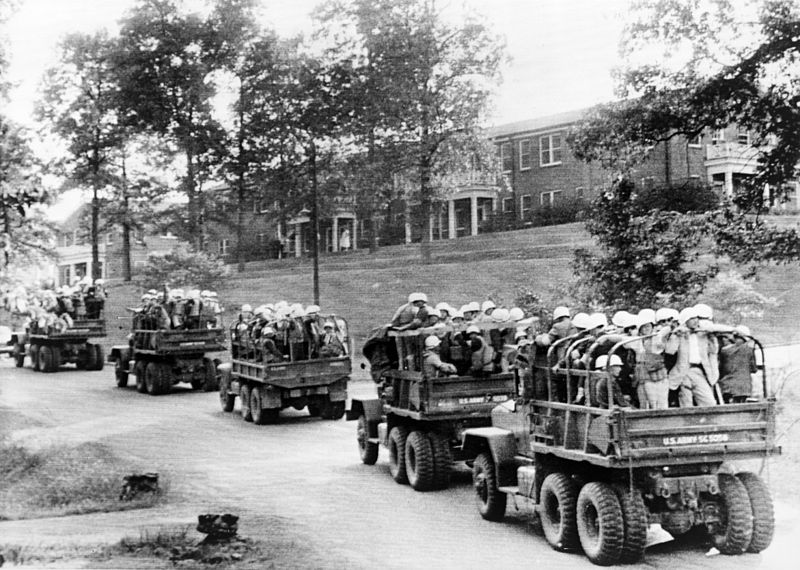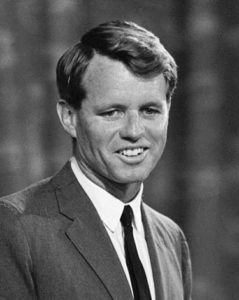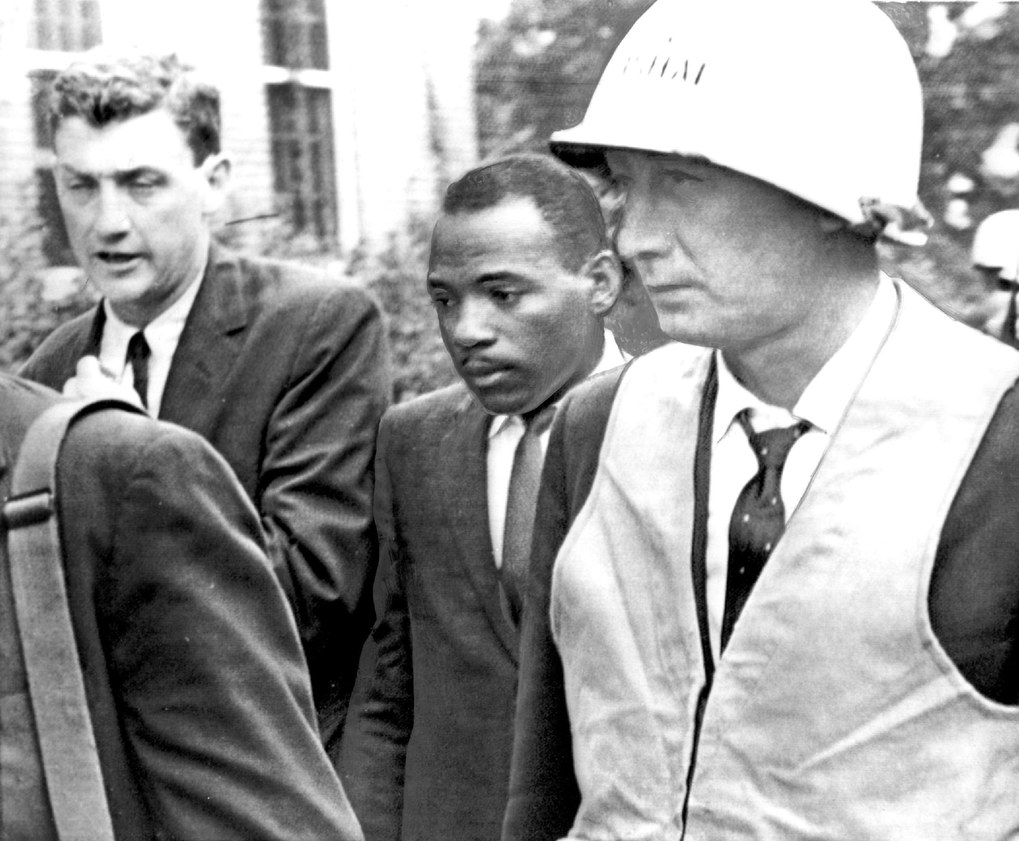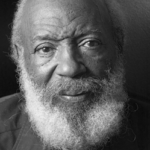James Meredith, Joe Graham and the Right Side of History
Listen to audio version of this article

My big brother Joe died in 2011 and in the course of one of our last conversations I asked him who he most looked up to in life. I figured he would mention our father, Goldie Graham, a beloved Philadelphia coach and mentor to young people who ran unsuccessfully for Congress as a Republican in 1952.
He didn’t, and he didn’t hesitate when he answered.
“James Meredith,” Joe told me.

The name was already meaningful to me, first through my older brother, and then through history.
As we talked, my brother and I, we remembered that night in 1962, when Joe, then an MP in the National Guard, received the call, on orders from Attorney General Bobby Kennedy, that he needed to go to New Jersey to be transported to the South to guard James Meredith.
I didn’t know what it meant at the time. I was just a kid from South Philadelphia riding with my little brother Larry in the back seat of a green Ford station wagon as my brother sped off to Fort Dix.
It was only later that I learned that Meredith was the first African American student admitted to the segregated University of Mississippi in Oxford. He had applied to the school in order to pressure the Kennedy Administration to enforce national civil rights laws in the face of segregationist Governor Ross Barnett and the Dixiecrats.
Joe was one of the National Guardsman assigned to protect Meredith as he moved onto campus and

attended classes. Even a tough, ethnic neighborhood in Philly couldn’t have prepared Joe for the hatred he saw from the whites lined up to prevent the highly qualified former service veteran James Meredith from going to school. Or maybe it was the hatred he encountered there that revealed to him the wrongness of what passed for normal, racial turf wars in his own northern hometown.
It would change Joe, the whole experience down South.
He spoke about the rest of his life, and on his death bed.
I remember it too, through Joe.
We were going so fast as we drove my brother over the Ben Franklin Bridge, my brother Jimmy at the wheel, and into the New Jersey night. A state trooper stopped us. Joe apologized and explained that he was on his way to Fort Dix and deployment to Mississippi on orders from the attorney general. He was in his National Guard uniform. The state trooper gave us an escort to the base and soon Joe was on a plane bound for Ole Miss.
From his hospital bed, he again talked to me about what he experienced on that fateful trip. In the middle of the night, he arrived on a riot-torn campus in a troop carrier with his fellow guardsmen. He had landed in the thick of the Battle of Oxford, as it came to be called, where segregationists opposed to Meredith’s admittance to the university clashed with the federal troops sent to ensure his safe passage.
Joe was on the front line of history.

He stood guard outside James Meredith’s door in Baxter Hall. He described to me the horrible, deafening noise coming from above, the stamping of feet and bouncing of basketballs over Meredith’s dorm room. These were segregationists trying to make it intolerable for the student to concentrate, to have peace of mind, to feel that he wasn’t under siege. Joe went upstairs and cleared the area. Then he went back down, and the clamor again started. Gunfire. A car set ablaze. Unrest. All through the night.
The bitter, bloody clashes on the university campus resulted in the deaths of two people, one a French journalist, and injuries sustained by over 300, and they were a harbinger of what was to come. The bloodiest battles of the civil rights movement were just beginning.
Through it all, in those hours that my brother spent with him, James Meredith was poised and impeccable, Joe told me. He never lost his cool. He never showed fear. His service in the United States Air Force gave him an easy familiarity and esprit de corps with most of the guardsmen. He never lost his discipline and sense of mission.
On the morning of Joe’s first day on the campus, he watched Meredith prepare himself for class. He put on his suit and was standing by the mirror as Joe, part of the military escort that would accompany Meredith on his first day of class, waited in the doorway.
“Is that ni-ger ready yet?” came the voice of another guardsman from the end of the hall at the exit door.
Joe was taken aback by the remark.
Meredith stepped out of his room like a military man, visibly unruffled, ramrod, looked to the left and said, “This n-ger is ready.”
He graduated in 1963 with a degree in political science, true to his word at the outset when he said, “I believed, and believe now, that I have a Divine Responsibility. I am familiar with the probable difficulties involved in such a move as I am undertaking and I am fully prepared to pursue it all the way to a degree from the University of Mississippi.”
 Three years after he graduated, and a year after the Voting Rights Act of 1965, as James Meredith led blacks on a voting drive and civil rights march, a white segregationist’s bullet put him in the hospital, but he got out in time to finish the march. He ran unsuccessfully for Congress as a Republican in 1967.
Three years after he graduated, and a year after the Voting Rights Act of 1965, as James Meredith led blacks on a voting drive and civil rights march, a white segregationist’s bullet put him in the hospital, but he got out in time to finish the march. He ran unsuccessfully for Congress as a Republican in 1967.
He’s still alive, at 86.
My brother Joe died, but he never forgot the immense pride he felt when he read about Meredith’s son receiving a PhD from the University of Mississippi. At that recollection, Joe was in tears. He never forgot what that man taught him, about courage, and belief, and I won’t either, and I’ll never forget my big brother Joe racing down to Mississippi to stand beside James Meredith, on the right side of history.
John F.X. Graham is the publisher of InsiderNJ.com.












Leave a Reply